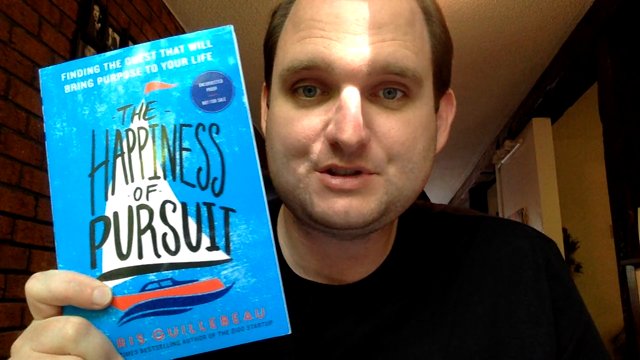The Happiness of Pursuit
 I'm very happy to say that I received an advanced copy of Chris Guillebeau's book, The Happiness of Pursuit: Finding the Quest That Will Bring Purpose to Your Life, which launched today in bookstores around the country and I love it! I've included my brief video review below.
I'm very happy to say that I received an advanced copy of Chris Guillebeau's book, The Happiness of Pursuit: Finding the Quest That Will Bring Purpose to Your Life, which launched today in bookstores around the country and I love it! I've included my brief video review below.
I've been a long-time admirer of Chris and had a chance to sit down with him to ask a few questions about his new book. Thank you Chris for taking the time to share some of your thoughts with us and for writing a really fantastic book.
****
What inspired you to write this awesome book?
Well, first I spent 10 years visiting every country in the world. :) After that, I felt like I had a story to tell.
What was your favorite part of writing it?
Learning that I wasn't alone in questing. At first I heard stories of other travelers pursuing travel-related quests, but then I began to see that there were all kinds of other quests, too. It was great to see how people had applied the concepts of pursuing a big adventure in their own way.
What is a quest? Is it just a long trip or athletic pursuit?
A quest has a few specific characteristics: a clear goal, a real challenge, and a set of milestones along the way. Interestingly, while a quest is often an extended physical journey—like visiting every country in the world or circumnavigating the oceans in a small sailboat—there are many other kinds of quests as well. Over several years of research, I met activists, academics, artists, and others who chose to spend long amounts of time on something that mattered to them. I was interested in why they undertook such a mission, and what happened to them as they drew closer to their goal.
How do questers decide on what to pursue and what to avoid?
If you’re going to pursue a quest, you should choose something you’re really excited about. My quest was to visit every country in the world, mostly because I loved travel and enjoyed combining it with the structure of goal-setting. Others focus on their own hobbies or passions, turning them into the long-term pursuits: to knit 10,000 hats, to walk across America, to become a real-life ninja, and so on.
It also helps if there’s a deeper purpose to your quest. Many of the people I talked to for the book felt a sense of calling or mission, even if they weren’t religious. They were compelled; they simply had to pursue the quest. They knew if they didn’t, they would always regret it.
Is it important to document a quest?
One of the key themes of quests is that they must be measurable. They must have an end goal—you have to be able to say, “This is what I’m working toward and I’ll complete it when x happens.” Documenting the steps along the way provides tremendous momentum, since you can see how far they’ve come and how far still remains.
In my case I used a Wikipedia article that contained a list of every country. I copied it into Evernote and whenever I visited a new country, I’d place a big X beside it. As the years went by, the number of Xs grew until there were only a few places I hadn’t visited. Finally, I was able to visit those places as well. Just having that file gave me a sense of urgency as I made my plans and set out on another Round-the-World trip or 30-hour series of flights.
What happens to someone after they’ve completed the quest or achieved their goal?
Most of the time there's a feeling of accomplishment combined with a sense of melancholy or even alienation. Quests are complicated! Very often, much of the identity of the quester lies in the quest itself. The best path forward is usually to take some time to reflect on the journey. Then—whenever the time is right—you’ll need a new quest.
How can people get involved in the amazing work you are doing?
I'm happy to connect with them on my blog or on their preferred social network. Oh, and I'm also doing a 40 city tour for the book. Please join us!
****
I encourage everyone to go check out The Happiness of Pursuit by Chris Guillebeau, you won't regret it!